
OR
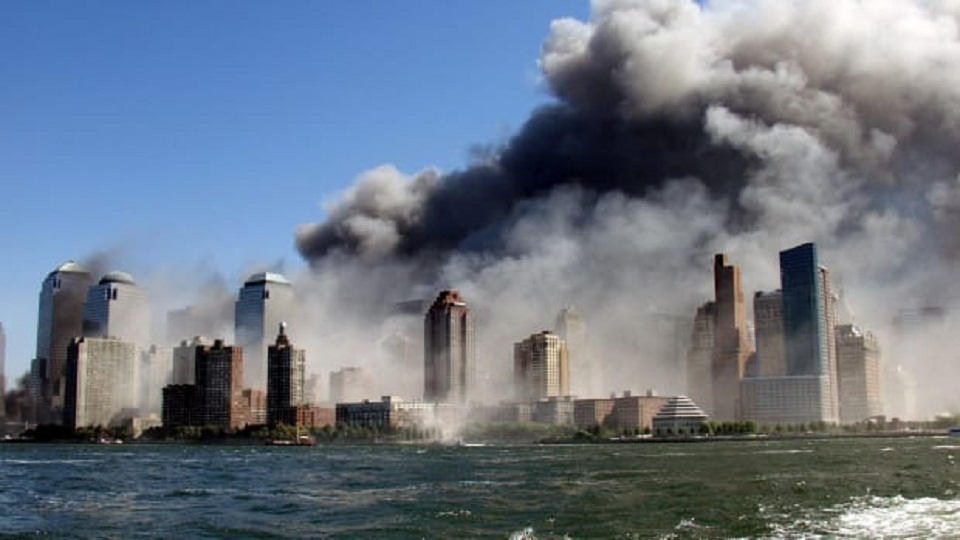

Narayan Adhikari
The author is a researcher on National Security and Terrorism.adhikarinarayan@live.com
As we commemorate the victims of 9/11 attacks today, we must also stand united to fight terrorism to uproot it for good.
September 11, 2001. That was the black day of terror for the world. Today, 19 years later, we still feel its reverberations. The 9/11 attack was the deadliest attack on the US soil since the Japanese attack on Pearl Harbor during World War II.
Two thousand nine hundred and seventy-seven innocent people lost their lives when 19 men hijacked four fuel-loaded US commercial airliners and brought down the world's biggest twin-tower. This was masterminded by al Qaeda leader Osama bin Laden.
Soon, George Bush called the US military to be ready. “Whether we bring our enemies to justice or bring justice to our enemies, justice will be done,” said Bush. The message was clear. War on terror had begun, including against the Al-Qaeda extremist group and its leader. The US suffered this tragedy largely because its intelligence agencies failed to detect or act on the information. 9/11 tragedy is the outcome of American intelligence failure. Similar failure has led to the tragedies in other countries too—April, 2019 Easter Sunday bombing in Sri Lanka and 2008 attack on Mumbai are the examples.
Organized extremist groups resort to what is called “skyjacking”—seizure of aircraft. Airline hijacking was common until recently. The first recorded hijacking was in 1931 in Peru by armed revolutionaries. Between 1968 and 1972, more than 130 American airplanes were hijacked. Between 1968 and 1972, airline hijacked was on its peak in the US. After 1973, when the Federal Aviation Administration (FAA) adopted new rules of screening all the passengers, the cases of hijacking started to decline.
Nepal too has had stories of hijacking. Biratnagar plane hijack of 1973 was the first plane hijacking incident in Nepal’s history. Late Girija Prasad Koirala was its mastermind. On December 24, 1999, Indian Airlines flight, bound for Delhi from Kathmandu, was hijacked by the Taliban. The 1999 hijack incident raised a big question mark on Nepal’s airport security. Twenty one years later, it still remains a mystery as to who helped these terrorists to carry weapons on board from the Tribhuvan International Airport (TIA). Notorious criminal Charles Sobhraj once commented ‘elephant of gold can pass through airport security’ of Nepal.
Hijacking of Indian Airlines plane was a crystal call for Nepal to modernize security scanning of passengers. International airports and international borders are sensitive spots and the authorities need to stand vigilant to ensure security on such sensitive spots. Nowadays many countries have deployed counter-terrorism force to support airport security and immigration authority. They are granted full power to detain the suspected people, even barring them from boarding the flight. In Nepal, special bureau of Nepal Police is working to prevent terrorist activities and other organized transnational crimes. There are skilled and professional police officers. But due to a lack of modern technology, resources, and adequate legal powers, the bureau is struggling to speed up its operations.
There is no consensus on what actually constitutes the act of terrorism. But terrorism is usually politically and socially motivated. One man's freedom fighter can be another man's terrorist. For example, Yasser Arafat, the leader of Palestinian Liberation Organization, was considered a terrorist by Israelis but in 1994 he was awarded Nobel Peace Prize.
Countries do not agree who is a terrorist outfit. During the Maoist insurgency (1996-2006), for example, America called Maoist a terrorist group while India said Maoist problem was Nepal's internal political problem. Government of Nepal had also declared the Maoist as a terrorist organization. International community must have been confused whether Maoists were a political force or a terrorist organization.
The countries can eliminate terrorism only if they agree on definition and approaches to eliminate it. Generally, lack of democratic rule, human rights, foreign military interventions and religious conflicts etc breed terrorism. But terrorist organizations have much in common with them. Majority of them create fear for political, religious, ethnic or ideological purposes.
The wave of terrorism has travelled through different trajectory—anarchist wave (which lasted for 40 years), followed by anti-colonial wave (1920s to 1960s), which ended along with political independence of the colonized countries. Today, terrorism is thriving on religious wave.
Whatever its forms and manifestations, each country must be committed to fighting terrorism. After 9/11 terrorist attack, trans-border terrorism is on the rise. India, Pakistan and Afghanistan are suffering from this. Trans-border terrorism also takes the form of cross-border terrorism, which is why Nepal should remain extremely cautious.
In Nepal, there are no apparent potential threats of terrorism as yet. But this should not give us an excuse to compromise or undermine our security system. We must strictly regulate our borders. Armed Police Force (APF) has been given the mandate of safeguarding the border. But due to lack of road connectivity, infrastructure, resources, and security equipment, major parts of Nepal’s borders are out of security surveillance. We need to post a border outpost within the distance of, at least, three kilometres, which is not the case at the moment. If the government can do this much, APF can easily monitor the border. Intelligence information must be shared on time between the Nepal Army, Nepal Police, Armed Police and National Investigation Department (NID). It is not happening at the moment.
The Department of Money Laundering Investigation strictly needs to monitor the informal economic activities. Nepal must enhance domestic and international cooperation. Terrorism and trans-border terrorism-related intelligence information sharing and counter-terrorism cooperation mechanism must work closely with neighbors and other countries.
South Asian member countries should stand together to establish peace and prosperity. Otherwise, terrorism may appear in all places in South Asia region as well.
As we commemorate the victims of 9/11 attacks today, we, the people and countries of the world, must stand united to fight terrorism to uproot it.
You May Like This
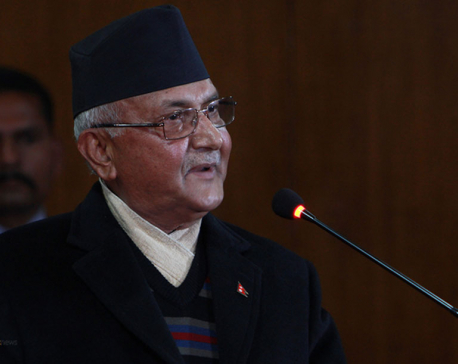
PM Oli talks about global terrorism, climate change and foreign policy in UN General Assembly
NEW YORK, Sept 28: Prime Minister KP Sharma Oli addressed the 73rd UN General Assembly in New York. PM Oli... Read More...



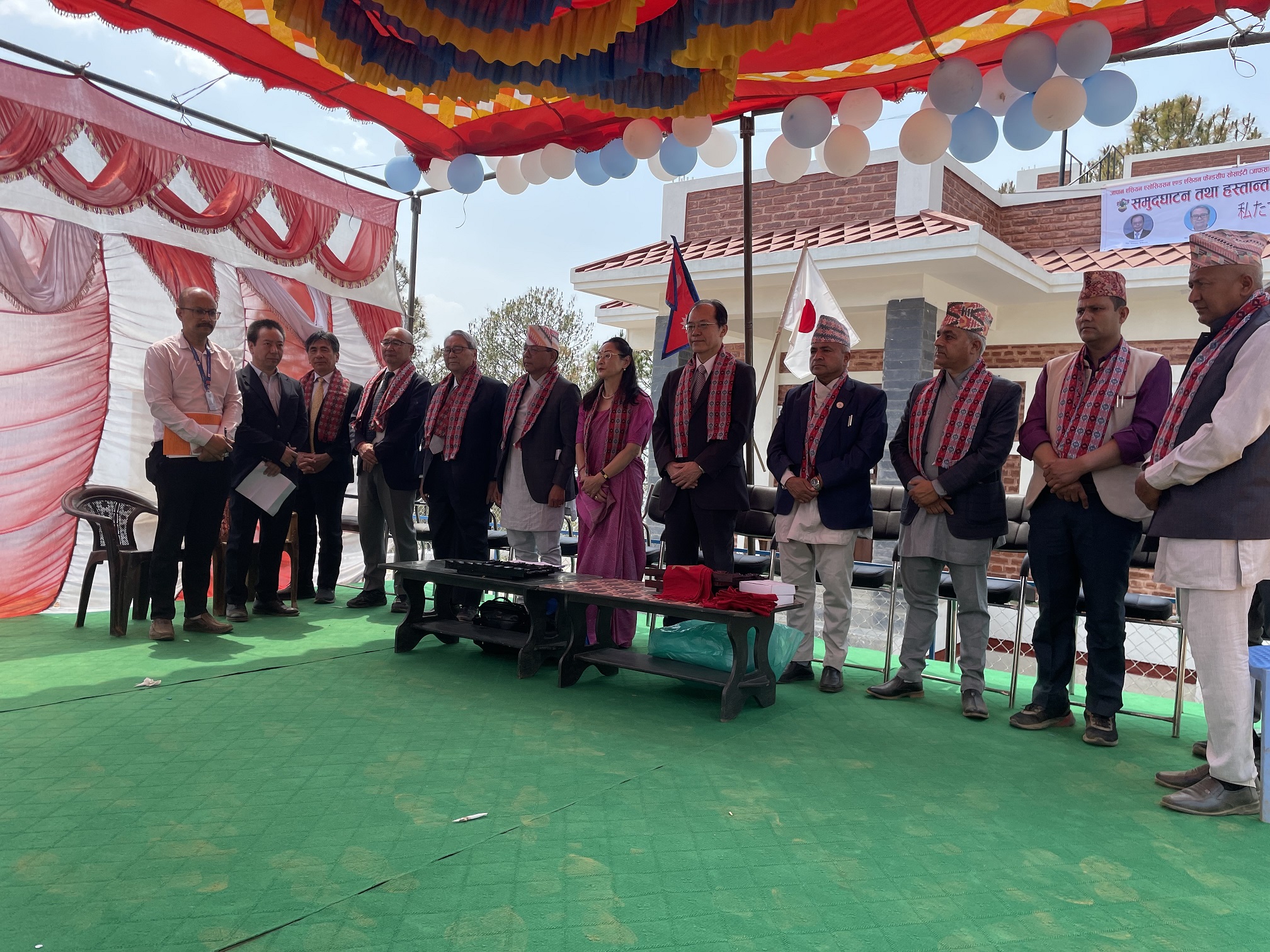
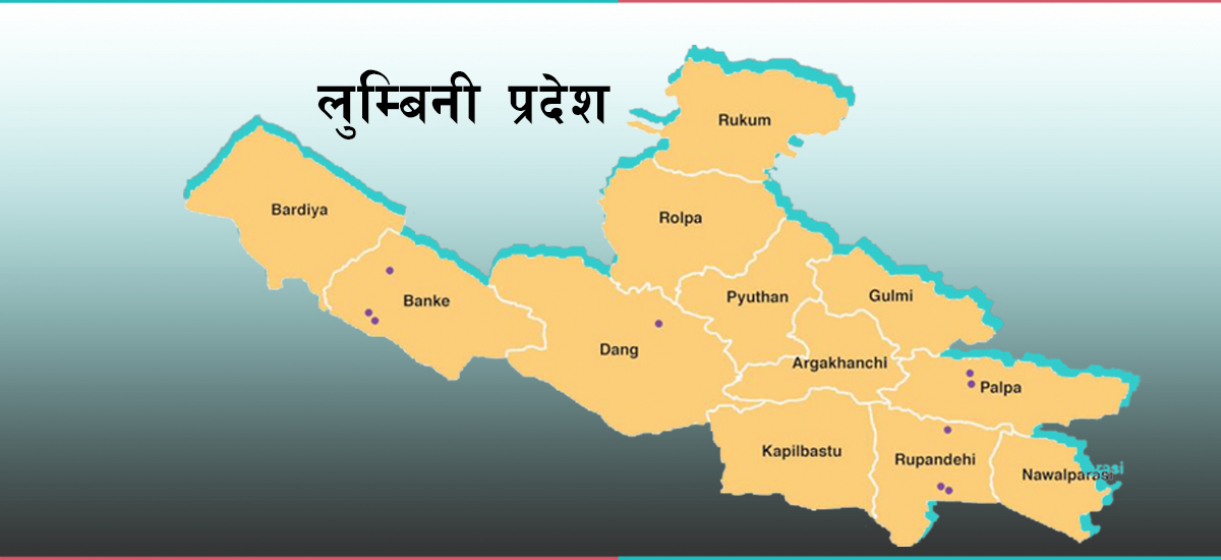
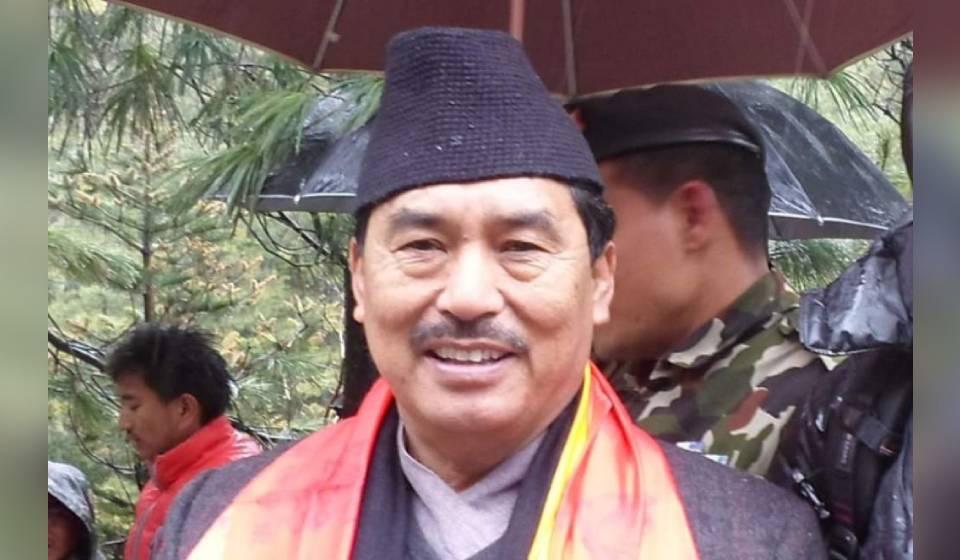


Just In
- Japan hands over Community Center for Disaster Prevention to Indrawati Rural Municipality
- Lumbini: Seven ministers gain portfolios
- NC lawmaker Gurung’s suspension lifted
- Homicide accused arrested after 17 years
- Karnali: Maoist Center’s Pariyar appointed as minister without portfolio
- Illam by-election: Nepal-India border to be 'sealed' from midnight today
- Gold price rises by Rs 500 per tola
- Emir of Qatar returns home after wrapping up state visit to Nepal



_20240423174443.jpg)




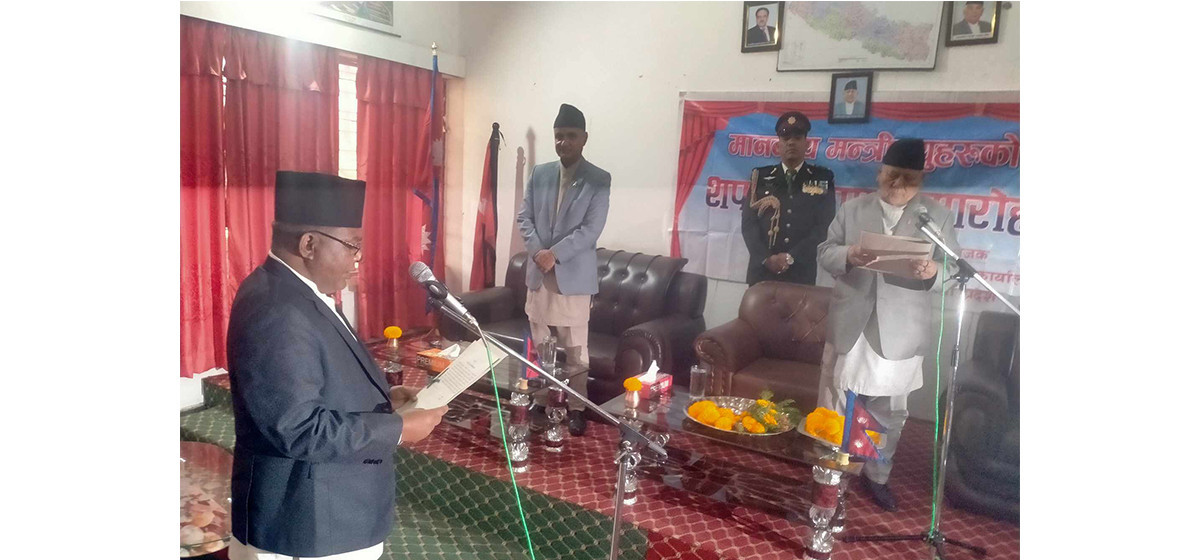

Leave A Comment